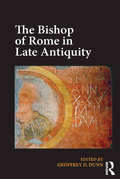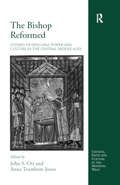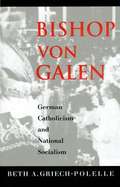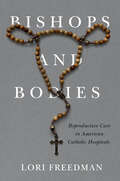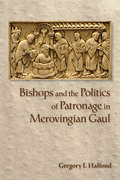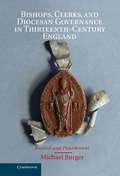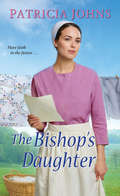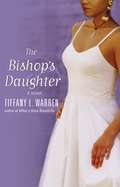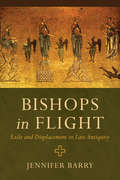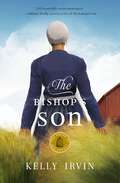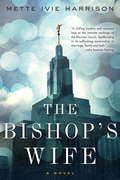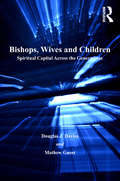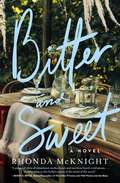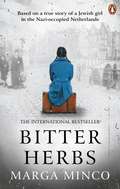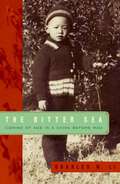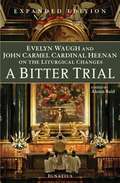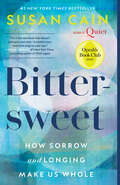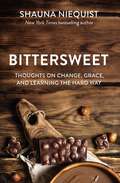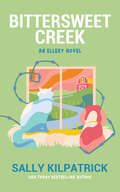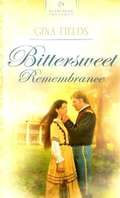- Table View
- List View
The Bishop of Rome in Late Antiquity
by Geoffrey D. DunnAt various times over the past millennium bishops of Rome have claimed a universal primacy of jurisdiction over all Christians and a superiority over civil authority. Reactions to these claims have shaped the modern world profoundly. Did the Roman bishop make such claims in the millennium prior to that? The essays in this volume from international experts in the field examine the bishop of Rome in late antiquity from the time of Constantine at the start of the fourth century to the death of Gregory the Great at the beginning of the seventh. These were important periods as Christianity underwent enormous transformation in a time of change. The essays concentrate on how the holders of the office perceived and exercised their episcopal responsibilities and prerogatives within the city or in relation to both civic administration and other churches in other areas, particularly as revealed through the surviving correspondence. With several of the contributors examining the same evidence from different perspectives, this volume canvasses a wide range of opinions about the nature of papal power in the world of late antiquity.
Bishop of the Resistance: The Life of Eivind Berggrav, Bishop of Oslo
by Edwin RobertsonThe role played by the Bishop of Oslo, especially during the Second World War.
The Bishop Reformed: Studies of Episcopal Power and Culture in the Central Middle Ages (Church, Faith and Culture in the Medieval West)
by Anna Trumbore JonesIn the period following the collapse of the Carolingian Empire up to the Fourth Lateran Council (1215), the episcopate everywhere in Europe experienced substantial and important change, brought about by a variety of factors: the pressures of ecclesiastical reform; the devolution and recovery of royal authority; the growth of papal involvement in regional matters and in diocesan administration; the emergence of the "crowd" onto the European stage around 1000 and the proliferation of autonomous municipal governments; the explosion of new devotional and religious energies; the expansion of Christendom's borders; and the proliferation of new monastic orders and new forms of religious life, among other changes. This socio-political, religious, economic, and cultural ferment challenged bishops, often in unaccustomed ways. How did the medieval bishop, unquestionably one of the most powerful figures of the Middle Ages, respond to these and other historical changes? Somewhat surprisingly, this question has seldom been answered from the bishop's perspective. This volume of interdisciplinary studies, drawn from literary scholarship, art history, canon law, and history, seeks to break scholarship of the medieval episcopacy free from the ideological stasis imposed by the study of church reform and episcopal lordship. The editors and contributors propose less a conventional socio-political reading of the episcopate and more of a cultural reading of bishops that is particularly concerned with issues such as episcopal (self-)representation, conceptualization of office and authority, cultural production (images, texts, material objects, space) and ecclesiology/ideology. They contend that ideas about episcopal office and conduct were conditioned by and contingent upon time, place and pastoral constituency. What made a "good" bishop in one time and place may not have sufficed for another time and place and imposing the absolute standards of prescriptive ideologies, medieval and modern, obfuscates rather than clarifies our understanding of the medieval bishop and his world.
Bishop Von Galen: German Catholicism and National Socialism
by Beth A. Griech-PolelleIn January 1937 several German Catholic cardinals and bishops, including Bishop Clemens August Graf von Galen, traveled to Rome to ask Pope Pius XI to issue a public statement about the perils faced by Catholics in Nazi Germany. The German clergymen drafted what later came to be known as the papal encyclical Mit brennender Sorge.
Bishops and Bodies: Reproductive Care in American Catholic Hospitals (Critical Issues in Health and Medicine)
by Lori FreedmanOne out of every six patients in the United States is treated in a Catholic hospital that follows the policies of the U.S. Conference of Catholic Bishops. These policies prohibit abortion, sterilization, contraception, some treatments for miscarriage and gender confirmation, and other reproductive care, undermining hard-won patients’ rights to bodily autonomy and informed decision-making. Drawing on rich interviews with patients and providers, this book reveals both how the bishops’ directives operate and how people inside Catholic hospitals navigate the resulting restrictions on medical practice. In doing so, Bishops and Bodies fleshes out a vivid picture of how The Church’s stance on sex, reproduction, and “life” itself manifests in institutions that affect us all.
Bishops and the Politics of Patronage in Merovingian Gaul
by Gregory I. HalfondFollowing the dissolution of the Western Roman Empire, local Christian leaders were confronted with the problem of how to conceptualize and administer their regional churches. As Gregory Halfond shows, the bishops of post-Roman Gaul oversaw a transformation in the relationship between church and state. He shows that by constituting themselves as a corporate body, the Gallic episcopate was able to wield significant political influence on local, regional, and kingdom-wide scales.Gallo-Frankish bishops were conscious of their corporate membership in an exclusive order, the rights and responsibilities of which were consistently being redefined and subsequently expressed through liturgy, dress, physical space, preaching, and association with cults of sanctity. But as Halfond demonstrates, individual bishops, motivated by the promise of royal patronage to provide various forms of service to the court, often struggled, sometimes unsuccessfully, to balance their competing loyalties. However, even the resulting conflicts between individual bishops did not, he shows, fundamentally undermine the Gallo-Frankish episcopate's corporate identity or integrity. Ultimately, Halfond provides a far more subtle and sophisticated understanding of church-state relations across the early medieval period.
Bishops, Clerks, and Diocesan Governance in Thirteenth-Century England
by Michael BurgerThis book investigates how bishops deployed reward and punishment to control their administrative subordinates in thirteenth-century England. Bishops had few effective avenues available to them for disciplining their clerks, and rarely pursued them, preferring to secure their service and loyalty through rewards. The chief reward was the benefice, often granted for life. Episcopal administrators' security of tenure in these benefices, however, made them free agents, allowing them to transfer from diocese to diocese or even leave administration altogether; they did not constitute a standing episcopal civil service. This tenuous bureaucratic relationship made the personal relationship between bishop and clerk more important. Ultimately, many bishops communicated in terms of friendship with their administrators, who responded with expressions of devotion. Michael Burger's study brings together ecclesiastical, social, legal, and cultural history, producing the first synoptic study of thirteenth-century English diocesan administration in decades. His research provides an ecclesiastical counterpoint to numerous studies of bastard feudalism in secular contexts.
The Bishop's Daughter: A Sweet Amish Romance
by Patricia JohnsIn this poignant, beautifully written novel, a faithful young Amish widow is reunited with her wayward first love . . . As a bishop’s daughter and good Amish mother, widowed Sadie Hochstetler teaches her young son that God blesses those who try their best to please Him. But her brief marriage taught her that life is infinitely more complicated than that. Older, and serious, her late husband seemed a sensible choice—especially compared to Elijah Fisher, the spirited boy with whom she butted heads and hearts. Then Elijah abruptly left for the Englisher world, taking Sadie’s beloved brother along with him—a double betrayal she still strives to forgive. Especially now that Elijah has returned . . . Elijah plans to stay in the Amish community only as long as he’s needed, helping his family and working for Sadie’s ailing father. The outside world has changed him, leading him to question rules and restrictions that others take on faith. Once, he’d been head over heels in love with the bishop’s daughter—a girl he was judged unworthy of courting. Nine years have changed so much between them. Yet something remains—a spark that, for all their differences, might light the way home again . . .
The Bishop's Daughter
by Tiffany L. WarrenDarrin Bainbridge is your typical playboy in need of love, but not yet ready. He is a freelance journalist trying to break his big story. After a visit from his mother, Darrin gets an idea. He has heard all kinds of stories about "Hollywood" ministers who hold their church services on television, live in nice houses, drive nice cars, and have lots of money and women. Darrin is disgusted by it all especially when his mother Priscilla starts shouting praises for Atlanta Bishop Kumal Prentiss. Darrin decides to go to Atlanta, become a member of the bishop's church, and expose him for the hustling fraud that he believes he is. He just never planned on falling in love with the Bishop's daughter. Darrin suddenly finds himself torn between his new found friend and his possible big break.
Bishops in Flight: Exile and Displacement in Late Antiquity
by Jennifer BarryA free open access ebook is upon publication. Learn more at www.luminosoa.org. Flight during times of persecution has a long and fraught history in early Christianity. In the third century, bishops who fled were considered cowards or, worse yet, heretics. On the face, flight meant denial of Christ and thus betrayal of faith and community. But by the fourth century, the terms of persecution changed as Christianity became the favored cult of the Roman Empire. Prominent Christians who fled and survived became founders and influencers of Christianity over time. Bishops in Flight examines the various ways these episcopal leaders both appealed to and altered the discourse of Christian flight to defend their status as purveyors of Christian truth, even when their exiles appeared to condemn them. Their stories illuminate how profoundly Christian authors deployed theological discourse and the rhetoric of heresy to respond to the phenomenal political instability of the fourth and fifth centuries.
The Bishop's Mantle
by Agnes Sligh TurnbullThe Bishop dies, and a new rector steps in. He see things like the renting of pews that needs to stop, he wants to get married, and his new wife wants to have social parties at the Rectory. He also wants to be more active in the community, especially with the less well-healed-- which of course all new ideas annoy the Church elders. Will the church of St. Matthew change? What's the answer? You will not expect the ending.
The Bishop's Son: The Beekeeper's Son, The Bishop's Son, The Saddle Maker's Son (The Amish of Bee County #2)
by Kelly IrvinTwo men offer Leila two very different futures. Will she choose with her heart or with her faith?Leila Lantz has been in love with Jesse Glick from the day she first saw him at his father&’s store, but she can&’t make sense of his intentions. One day he wants to come courting, the next he seems to be putting distance between them.Jesse may be the bishop&’s son, but his faith has been wavering of late. If he is so unsure, is it fair to give Leila false hope for a future he doubts he can provide?Then there&’s Will, Jesse&’s cousin. He has been trying to keep his feelings for Leila a secret, but he also knows Jesse is wrestling with his faith. Would declaring his feelings for Leila be in her best interest or simply serving his own selfish desires?Leila knows she can choose Will and be secure in her own future. But when her heart speaks, it&’s Jesse&’s name she hears. When will God make His will known to her? Could leaving everything she knows—even her own faith—be a part of God&’s plan?
A Bishop's Tale: Mathias Hovius Among His Flock in Seventeenth-century Flanders
by Craig Harline Eddy PutDrawn from the rare journal of the Archbishop of Mechelen from 1596 to 1620, this biography sheds light on the colorful life of Mathias Hovius, as well as the key events and characters of the Catholic Reformation period. The authors relate the stories of monks, nuns, priests, pilgrims, peasant women, saints, and others. 24 illustrations.
The Bishop's Wife
by Mette Ivie HarrisonIn the predominantly Mormon city of Draper, Utah, some seemingly perfect families have deadly secrets. Linda Wallheim is a devout Mormon, the mother of five boys and the wife of a bishop. But Linda is increasingly troubled by her church's structure and secrecy, especially as a disturbing situation takes shape in her ward. One cold winter night, a young wife and mother named Carrie Helm disappears, leaving behind everything she owns. Carrie's husband, Jared, claims his wife has always been unstable and that she has abandoned the family, but Linda doesn't trust him. As Linda snoops in the Helm family's circumstances, she becomes convinced that Jared has murdered his wife and painted himself as a wronged husband.Linda's husband asks her not to get involved in the unfolding family saga. But Linda has become obsessed with Carrie's fate, and with the well-being of her vulnerable young daughter. She cannot let the matter rest until she finds out the truth. Is she wrong to go against her husband, the bishop, when her inner convictions are so strong?Inspired by a chilling true crime and written by a practicing Mormon, The Bishop's Wife is both a fascinating look at the lives of modern Mormons as well as a grim and cunningly twisted mystery.From the Hardcover edition.
Bishops, Wives and Children: Spiritual Capital Across the Generations
by Douglas J. Davies Mathew GuestChristianity as a cultural force, whether rising or falling, has seldom been analysed through the actual processes by which tradition is transmitted, modified, embraced or rejected. This book achieves that end through a study of bishops of the Church of England, their wives and their children, to show how values fostered in the vicarage and palace shape family, work and civic life in a supposedly secular age. Davies and Guest integrate, for the first time, sociological concepts of spiritual capital with anthropological ideas of gift-theory and, alongside theological themes, use these to illuminate how the religious professional functions in mediating tradition and fostering change. Motifs of distant prelates, managerially-minded fathers in God and rebellious clergy children are reconsidered in a critical light as new empirical evidence offers unique insights into how the clergy family functions as an axis of social power in an age incredulous to ecclesiastical hierarchy. Bishops, Wives and Children marks an important advance in the analysis of the spirituality of Catholic, Evangelical and Liberal leaders and their social significance within a distinctive Christian tradition and all it represents in wider British society.
Bitter and Sweet: A Novel
by Rhonda McKnightFrom the beloved author of The Thing About Home comes a dual timeline tale of family, grief, secrets, and the sweet redemption that lies within the bonds of sisterhood.-The Present-When summoned to Georgetown, South Carolina, sisters Mariah Clark and Sabrina Holland both assume their ailing grandfather's health has gotten worse. Neither expects their grandmother's undeniable request--save the family restaurant.Mariah is at a crossroad in her life. After being dumped by her husband and forced to walk away from their diner that she helped rescue from bankruptcy, bitter feelings consume her. Even though the restaurant has been in the family for eighty-six years, giving her all to another struggling business isn't something she wants to do.Living out of her van and striving for a fresh start, Sabrina yearns for stability for herself and her daughter and a chance to turn her baking hustle into a bona-fide business. The family restaurant may be just the blessing she needs--but as old tensions and angry disagreements resurface, Sabrina wonders if her sister will let her have a say.-The Past-After falling victim to a love she thought would last a lifetime, Tabitha Cooper finds herself away from home and struggling to survive in Charleston in the early twentieth century. She is determined to turn corn into cornbread and to take care of her children the best way she knows how--by serving food that's good for the soul--and along the way forges a path that leaves a legacy of success for generations to come.Through letters that reveal Tabitha's complicated past, the sisters discover truths that just might be the right recipe to mend their hearts--if they can find a way to savor the blessing of today and leave the bitter aftertaste of old memories behind them.
A Bitter Brew (Tearoom Mysteries #26)
by Elizabeth LudwigJan and Elaine are thrilled when Jan is chosen to compete in the Traveling Baking Challenge. Not only is the invitation to compete an honor, it will bring national recognition to their little town, since the contest is televised every year. Things get even more exciting when the producer of the show asks if they can use the tearoom as the backdrop for this year's contest. Things go awry, however, when the trophy--a chest stuffed with the prize money--disappears right from under everyone's noses. Worse, the cousins find themselves as the prime suspects when information is leaked that the tearoom is facing the threat of a financial crisis. Determined to clear their names, Jan and Elaine set out to discover the real culprit. Can they do it before the contest ends, or will they fall faster than Jan's award-winning soufflé? Mix together one stately Victorian home, a charming lakeside town in Maine, and two adventurous cousins with a passion for tea and hospitality. Add a large scoop of intriguing mystery and sprinkle generously with faith, family, and friends, and you have the recipe for Tearoom Mysteries.
Bitter Herbs: Based on a true story of a Jewish girl in the Nazi-occupied Netherlands
by Marga Minco‘The evening the men came I fled through the garden gate…’The Netherlands, World War IIWhen the Nazis invade the Netherlands in May 1940 it's clear that life is changing for the girl and her family. Step by step, the Nazis close in on the Dutch Jews. But when the authorities finally come to the family home a split decision will have devastating consequences.Marga Minco’s autobiographical novel Bitter Herbs is a Dutch classic that has been translated into more than fifteen languages. This deceptively simple and profoundly moving tale is now reissued with a new translation by Jeannette K Ringold.
Bitter Rose: Color Me Crushed (TrueColors #8)
by Melody CarlsonMaggie blames her mom for the family's disintegration. "She's driven him away with her constant nagging and complaining and arguing. Honestly, who could stand to live with that woman?" she vents to her friend Claire. However, there's more to the story, and Maggie desperately wants to know the truth -- something nobody seems willing to tell her.
The Bitter Sea: Coming of Age in a China Before Mao
by Charles N. LiThis haunting, illuminating memoir tells the remarkable true story of a young Chinese man’s coming-of-age during the tumultuous early years of the People’s Republic of ChinaIn this exceptional personal memoir, Charles N. Li brings into focus the growth pains of a nation undergoing torturous rebirth and offers an intimate understanding of the intricate, subtle, and yet all-powerful traditions that bind the Chinese family.Born near the beginning of World War II, Li Na was the youngest son of a wealthy Chinese government official. He saw his father jailed for treason and his family's fortunes dashed when Chiang Kai-shek's Nationalists came to power in 1945. He watched from his aunt's Shanghai apartment as the Communist army seized the city in 1948. He experienced the heady materialism of the decadent foreign "white ghosts" in British Hong Kong and starved within the harsh confines of a Communist reform school. Over the course of twenty-one tumultuous years, he went from Li Na, the dutiful Chinese son yearning for a stern, manipulative father's love, to Charles, an independent Chinese American seeking no one's approval but his own.Lyrical and luminous, intense and extraordinary, The Bitter Sea is an unforgettable tale of one young man and his country.
A Bitter Trial: Evelyn Waugh And John Carmel Cardinal Heenan On The Liturgical Changes
by Evelyn Waugh John Heenan Alcuin ReidEnglish author Evelyn Waugh, most famous for his novel Brideshead Revisited, became a Roman Catholic in 1930. For the last decade of his life, however, Waugh experienced the changes being made to the Church's liturgy to be nothing short of a bitter trial. In John Cardinal Heenan, Waugh found a sympathetic pastor and somewhat of a kindred spirit. <p><p> This volume brings together the personal correspondence between Waugh and Heenan during the 1960s, a trying period for many faithful Catholics. It begins with a 1962 article Waugh wrote for the Spectator followed by a response from then Archbishop Heenan, who at the time was a participant at the Second Vatican Council. These and the other writings included in this book paint a vivid picture of two prominent and loyal English Catholics who lamented the loss of Latin and the rupture of tradition that resulted from Vatican II. <p> In the light of the pontificate of Pope Benedict XVI, many Catholics are looking again at the post-conciliar liturgical changes. To this reform of the reform of the liturgy now underway in the Roman Catholic Church, both Heenan and Waugh have much to contribute.
Bittersweet: How Sorrow and Longing Make Us Whole
by Susan CainIn her new masterpiece, the author of the bestselling phenomenon Quiet reveals the power of a bittersweet outlook on life, and why we’ve been so blind to its value. Bittersweetness is a tendency to states of longing, poignancy, and sorrow; an acute awareness of passing time; and a curiously piercing joy at the beauty of the world. It recognizes that light and dark, birth and death —bitter and sweet—are forever paired. <p><p>If you’ve ever wondered why you like sad music . . . If you find comfort or inspiration in a rainy day . . . If you react intensely to music, art, nature, and beauty . . . Then you probably identify with the bittersweet state of mind. <p><p>With Quiet, Susan Cain urged our society to cultivate space for the undervalued, indispensable introverts among us, thereby revealing an untapped power hidden in plain sight. Now she employs the same mix of research, storytelling, and memoir to explore why we experience sorrow and longing, and how embracing the bittersweetness at the heart of life is the true path to creativity, connection, and transcendence. <p><p>Cain shows how a bittersweet state of mind is the quiet force that helps us transcend our personal and collective pain. If we don’t acknowledge our own heartache, she says, we can end up inflicting it on others via abuse, domination, or neglect. But if we realize that all humans know—or will know—loss and suffering, we can turn toward one another. At a time of profound discord and personal anxiety, Bittersweet brings us together in deep and unexpected ways. <p> <b>New York Times Bestseller</b>
Bittersweet: Thoughts on Change, Grace, and Learning the Hard Way
by Shauna Niequist“The idea of bittersweet is changing the way I live, unraveling and re-weaving the way I understand life. Bittersweet is the idea that in all things there is both something broken and something beautiful, that there is a moment of lightness on even the darkest of nights, a shadow of hope in every heartbreak, and that rejoicing is no less rich even when it contains a splinter of sadness. “It’s the practice of believing that we really do need both the bitter and the sweet, and that a life of nothing but sweetness rots both your teeth and your soul. Bitter is what makes us strong, what forces us to push through, what helps us earn the lines on our faces and the calluses on our hands. Sweet is nice enough, but bittersweet is beautiful, nuanced, full of depth and complexity. Bittersweet is courageous, gutsy, audacious, earthy. “This is what I’ve come to believe about change: it’s good, in the way that childbirth is good, and heartbreak is good, and failure is good. By that I mean that it’s incredibly painful, exponentially more so if you fight it, and also that it has the potential to open you up, to open life up, to deliver you right into the palm of God’s hand, which is where you wanted to be all long, except that you were too busy pushing and pulling your life into exactly what you thought it should be. “I’ve learned the hard way that change is one of God’s greatest gifts, and most useful tools. Change can push us, pull us, rebuke and remake us. It can show us who we’ve become, in the worst ways, and also in the best ways. I’ve learned that it’s not something to run away from, as though we could, and that in many cases, change is a function of God’s graciousness, not life’s cruelty.” Niequist, a keen observer of life with a lyrical voice, writes with the characteristic warmth and honesty of a dear friend: always engaging, sometimes challenging, but always with a kind heart. You will find Bittersweet savory reading, indeed. “This is the work I’m doing now, and the work I invite you into: when life is sweet, say thank you, and celebrate. And when life is bitter, say thank you, and grow.”
Bittersweet Creek (An Ellery Novel #2)
by Sally KilpatrickFrom USA Today bestselling author Sally Kilpatrick comes a country-fried take on Romeo and Juliet.The second worst thing Romy Satterfield ever did was fall in love with Julian McElroy. The first was to marry him.For decades, her family and his have been locked in a feud—their farms separated only by a narrow creek and thick band of bad blood with both sides committing their fair share of sins. Once upon a time, Romy and Julian thought they could change that—right up until the moment he stood her up on their wedding night.When her father breaks his leg, Romy reluctantly returns to care for him and the family farm. Seems like the universe is saying it’s time to get that divorce—especially since she’s engaged to Nashville’s most eligible bachelor. All she has to do is get Julian to sign the papers—too bad he’s never been one to make things easy for her.
Bittersweet Remembrance
by Gina FieldsSnowbird Walker lost her true love to a lie. Now, the consequences of sin and deception have yielded tragedy. The land she and her Cherokee people thought would bring solace and safety has become tainted with her dreams and disappointments. Marcus Gunter left his beloved behind to join the military, then his prejudiced father convinced him of her death. Twenty-seven years later, he receives a letter forcing him to face a shocking past before he can look to the future. Will Snowbird and Marcus yield their pride to remember their love for one another...and the Lord?
